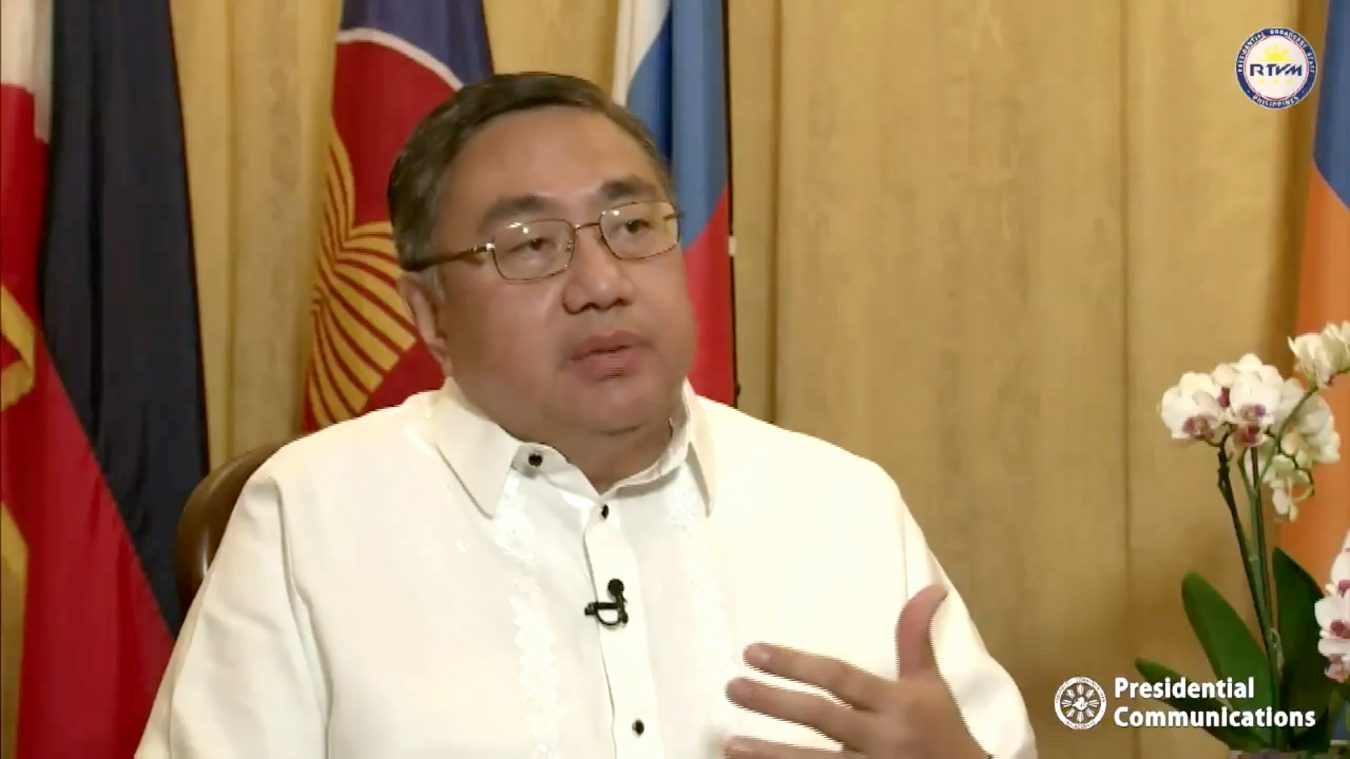
MOSCOW, Russia—The Philippine ambassador to Russia hopes that the meeting between President Rodrigo Roa Duterte and President Vladimir Putin would speed up the crafting of a bilateral labor agreement for the benefit of the Filipino workers.
In an interview on Wednesday, Ambassador Carlos Sorreta said he expects President Duterte to raise the labor issue with President Putin during their bilateral meeting in Sochi, Russia on Thursday.
“I’m almost sure 100 percent he will raise it and he will…we have prepared the groundwork so that hopefully President Putin also has been briefed and sana ay magkaroon sila ng konting understanding para masulong ‘yung negosasyon sa bilateral labor agreement,” he said in an interview with the media at the Philippine embassy here.
Other countries have bilateral labor agreement with Russia, mostly with the Soviet Union. The Philippines has no such legal framework and it only started to catch up after President Duterte’s election in 2016.
“So hopefully ‘yung bilateral labor agreement — dahil sa usapan ng ating mga Presidente ay ito’y mapabilis nang konti — ‘yung ating mga posisyon na gustong gawin ay sana mas madalian tayo sa pag-negotiate,” Sorreta said.
There’s a huge potential in Russia’s labor market that the Philippines can tap, according to Sorreta. Although the country’s supply is mostly childcare and household workers, the Philippines can expand to include those in the oil industry, mining, and construction.
“And they’re [Filipinos] very much in demand because of their work ethic and they’re really hardworking,” he said, stressing those are the reasons the Philippines has a very good chance of having a labor agreement with Russia although it is not a traditional source of labor force.
But the Philippine ambassador also mentioned some challenges. One of the hurdles is the continued illegal recruitment of Filipino workers bound for Russia.
Another is the use of fake documents by Filipinos going to Russia that often results to their incarceration. To help Filipinos in distress, the Philippine embassy has put up a shelter for those who are facing detention.
Sorreta also wants the agreement to include the grant of amnesty to undocumented Filipinos in Russia.
“Kasi gusto ko na ‘yung nandito, magkaroon ng oportunidad na ma-legalize sila at generally naman kasi mapag — we follow,” he said. “Ang ating mga Filipino dito pero law-abiding. They follow authority. Masipag. Hindi sila nanggugulo. So I think those are factors na makakatulong.”
Sorreta also made an appeal to Filipinos, saying it will be easier for the country to secure a labor agreement with Russia if they refrain from doing anything illegal.
It is hard on the part of the government to negotiate a deal with the Russians if Filipinos continue to enter or stay in the country illegally, he stressed.
“At ‘pag lumalaki lalo ‘yung illegally recruited, ang chances na magkaroon ng amnesty, lumiliit. Kasi naging masyadong malaki ‘yung base na kailangan nilang bigyan ng amnesty,” Sorreta said. PND

